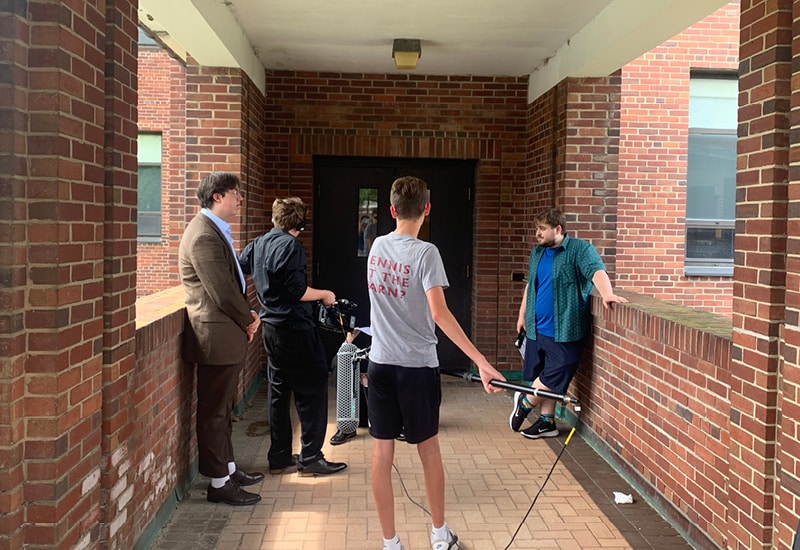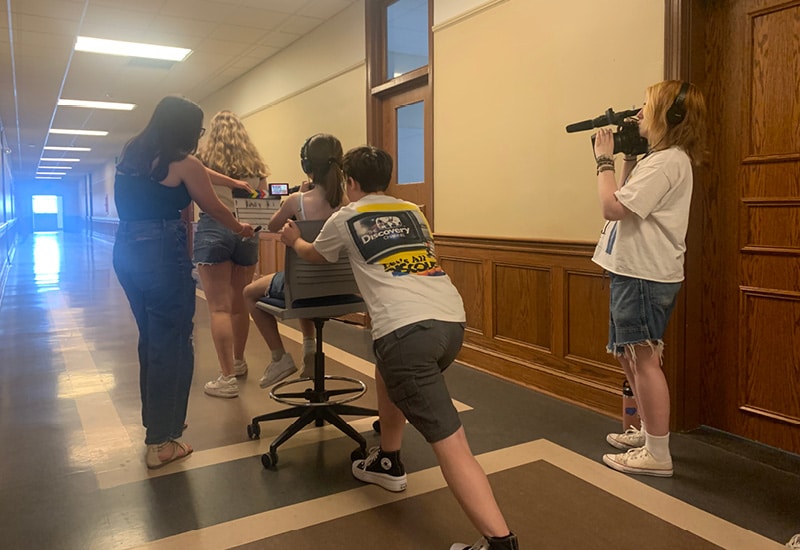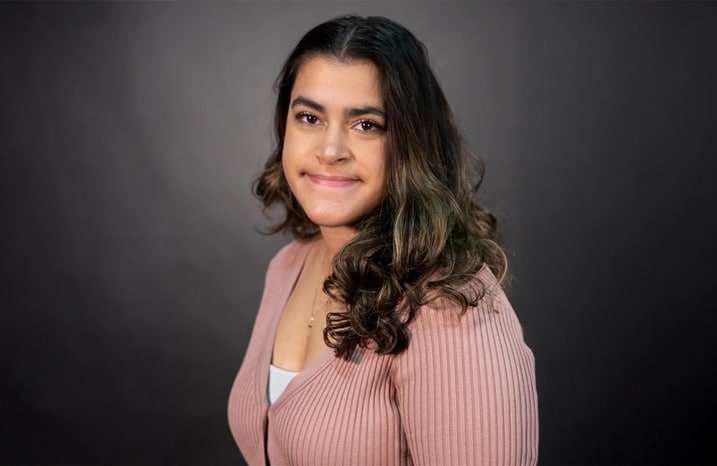1. What led you to become the film program instructor at Le Moyne College’s Summer Arts Institute?
As a former Phin who graduated from Le Moyne College with a B.A. in communications and minors in French, film, and criminology, returning to my roots to lead the film program at the Summer Arts Institute felt like a full-circle moment. While in undergrad at Le Moyne, I worked in the communications and film studies department as a work-study, which strengthened my connections to faculty and improved my knowledge of the film equipment. Stepping back on campus in this educator role is truly a dream come true. While I have previously worked in administrative roles at other summer camps, none offered this type of opportunity to combine my passions of education, film, and camp. Introducing youth to film studies and video production is deeply rewarding
to me.

2. Tell us a little about the program. What skills do attendees leave with?
Well, the simplest answer is a basic introduction to film studies and video production, but the skills reach well beyond the obvious. Attendees learn how to watch films critically as works of art, rather than mere entertainment. This analytical foundation of film helps aid in their ability to then reproduce. They engage with every phase of the production process — from storyboarding, script writing, and creating shot lists in pre-production to filming and directing during production, and finally editing, color grading, and peer review in post-production. By the end of the two weeks, each camper leaves with a completed short film, which ultimately reflects their newfound understanding of cinema.
3. How do you approach teaching film to students who are new to the medium?
We structure the camp day to balance classroom learning of film and hands-on experience shooting film. In the morning, the campers learn a brief introduction to the daily screening: its title, director, scriptwriter, cinematographer, release year, and genre. We then watch the film together on the big screen, followed by a group discussion to capture their initial reactions. This dialogue segues into a more in-depth analysis, where I present key cinematic and narrative elements tailored to our screening.
In the afternoon, campers then take what they’ve learned and put it into practice by working on their own short films. In my opinion, this is where the campers really learn — with a camera in their hands and room to experiment. Oftentimes, I discover the campers’ raw natural talent exceeds my expectations, and all they need is simple guidance to refine and focus it.

4. What is your favorite part of the program?
My favorite part of the program is witnessing campers fall in love with cinema. The theme of my year instructing was a study of the “coming-of-age” genre, which resonated deeply with our attendee population. One memorable moment was the day we screened The Perks of Being a Wallflower (2012). Sitting in the back of the room, I was able to watch the campers react to the same critical scenes that teared me up upon my first viewing of the film when I was their age. It’s moments like that why I love my role as an educator. Every summer, I get to rediscover my own love for cinema through the fresh eyes of my campers. Cinema can always inspire, engage, and transform viewers through its power of storytelling in moving pictures.
Know an educator who deserves a mention? Email [email protected].



